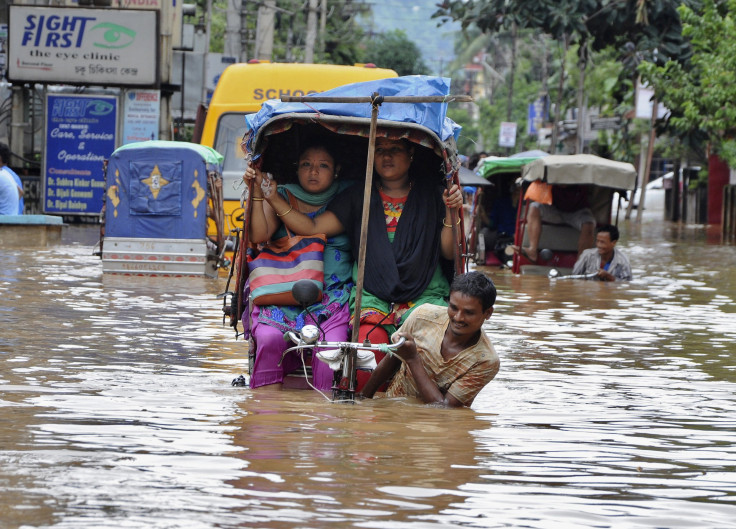India's Enviro Minister Says Country Won't Cut Greenhouse Gas Emissions Despite Rising Fossil Fuel Use

India, the world’s third-biggest climate polluter, won't offer a plan to reduce its greenhouse gas emissions ahead of the United Nations climate negotiations in Paris next year, according to a New York Times report. Prakash Javadekar, India’s new environment minister, said that developed nations -- not emerging economies -- should shoulder most of the burden for cutting pollution.
“India’s first task is eradication of poverty,” Javadekar told the Times Wednesday, a day after a U.N. climate change summit in New York. “Twenty percent of our population doesn’t have access to electricity, and that’s our top priority. We will grow faster, and our emissions will rise.” He said that improving the living standards of India’s 1.2 billion people will require building new coal-powered electricity and transportation.
Javadekar’s comments stand in stark contrast to the tone of the U.N. summit this week. China, the world’s largest emitter, made its boldest climate policy statements to date, and U.S. President Barack Obama promised to set more ambitious targets for cutting emissions sometime early next year. Organizers said they hoped the gathering could build momentum ahead of the 2015 Paris talks, where nations will negotiate an international deal to fight global warming.
Javadekar said that poorer countries shouldn’t be expected to eschew cheap fossil fuels and limit their industrial growth. He echoed a common sentiment among developing economies that industrialized nations -- namely the U.S. and those in Europe -- are morally obligated to make the largest emissions cuts, since they spent the past century burning fossil fuels and growing their economies, the Times noted.
“The moral principle of historic responsibility cannot be washed away,” he said in the interview.
India is responsible for just 3 percent of cumulative carbon dioxide emissions from 1870 to 2013, according to a new review paper published Sunday in Nature Geoscience. The U.S., by contrast, is responsible for about 26 percent of all historic carbon emissions and the European Union for 23 percent. China accounts for about one-tenth of the 1,430 gigatons of worldwide emissions over that period.
As India’s economy expands, its emissions are rising dramatically. The country accounted for 17 percent of global growth in carbon emissions from 2012 to 2013, according to the review paper. China made up 57 percent of emissions increases, with another 20 percent from the U.S.
The U.S. and China have long disagreed over the role that each nation should play in U.N. negotiations. The Obama administration has been reluctant to adopt legally binding emissions targets without China’s participation, and Chinese leaders, similar to Javadekar, have argued that “historic” emitters should make the steepest cuts.
But tensions between those two nations are easing as global pressure mounts to address the climate crisis. Scientists say the planet is on track to warm by 4 degrees Celsius (7.2 degrees Fahrenheit) above pre-industrial levels by the end of the century, a level that will yield catastrophic climate impacts like significant sea-level rise, more frequent and intense extreme weather events, long-lasting droughts and poorer air quality.
Given its massive and growing economy, India’s cooperation will be crucial for any global climate treaty, the Times noted. Without it, other nations will be less likely to sign a lasting agreement.
© Copyright IBTimes 2025. All rights reserved.





















